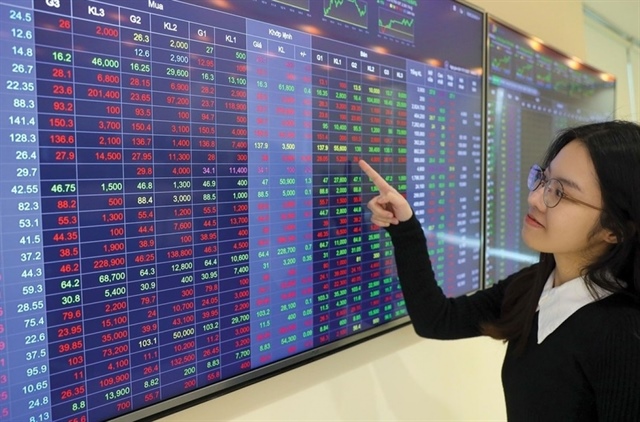SSC to detail its five key market policies
SSC to detail its five key market policies
The State Securities Commission (SSC) plans to issue legal documents this month to assist in the implementation of its five primary policy orientations for development of Viet Nam's stock market.

This statement was made by Nguyen Son, head of SSC's Development Market at a bilateral co-operation seminar between creditors and entrepreneurs of Viet Nam and Korea late last week.
The first orientation is aimed at increasing the supply of products on the securities markets through the acceleration of the State-owned enterprise restructuring, divestments of State capital from big companies and introduction of structured products like derivatives (index futures and bond futures), and covered warrants, in addition to non-voting depository receipts (NVDRs) or global depository receipts (GDRs).
The second policy focuses on stimulation of market demand and the encouragement of capital inflows in the market, together with the task of upgrading Viet Nam's stock market to the emerging market status in the MSCI's ranking.
Son said Viet Nam had satisfied some criteria of the MSCI, the world leading index construction provider, and the ranking promotion would happen in the near future. He also added that some legal documents would be soon issued to implement Decree 60 which increases foreign holdings in domestically listed companies.
The legal framework for information disclosure of public companies and development of professional investment institutions (exchange-traded funds, pension funds, investment-linked insurance products and investor protection funds) would be further developed.
The third group of policy is to speed up the market restructuring, including consolidation and dissolution of weak securities companies, permission of higher foreign ownership (between 50 per cent and 100 per cent) in domestic securities firms, and restructuring the two stock exchanges.
The fourth orientation concentrates on the development of support products and services such as a securities lending system, central clearing system, shortening of securities settlement time, and construction of online voting system of shareholder meetings at companies, apart from administrative reforms in granting transaction codes for foreign investors.
The last policy group is associated with the setting up of new trading mechanisms that allow trading in the same securities on the same day, and authorises depository banks to provide guarantee for investors' trade in case investors do not have enough money to purchase securities, together with granting transaction codes online.
Viet Nam's stock market has maintained sustainable development this year with the total market capitalisation (including securities and bonds) accounting for 53 per cent of the national GDP in 2014, equivalent to US$90 billion. The benchmark VN-Index has increased 6.8 per cent over the end of last year with the daily average market value of VND5 trillion ($223.2 million).



























